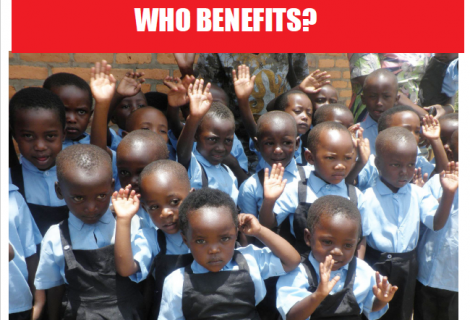
Rwanda has made remarkable development progress over the last 10 years has experienced sustained economic growth and the beginnings of economic transformation.
The country has seen: growth in the private sector; an increase in the proportion of agricultural production that is marketed; an increase in paid non-agricultural employment; an increase in domestic saving; an increase in tax domestic tax revenues; an increase in foreign direct and domestic investment; and an increase in and diversification of exports. This has been accompanied by a sharp reduction in the proportion of the population living in poverty, a reduction in inequalities, and significant improvements in health.
Primary education is near universal and the proportion of children attending secondary school is increasing rapidly with the introduction of nine-year basic education. Girls are now outperforming boys in primary school and have slightly higher attendance rates at both primary and secondary school than boys. Women are in a majority in parliament and their representation in other political posts is increasing. Rwanda looks on track to achieve most of the MDGs.We can ask, however, how inclusive are Rwanda’s policies; are all Rwandans benefiting, the poor as well as the better of, women as well as men, children as well as adults, people living with disabilities as well as the able bodied and so on? Are the lives of the poorest Rwandans improving and are they improving as rapidly as those of the better off?
In 2000 world leaders from 189 nations agreed and signed the Millennium Goals (MDGs) forging a global partnership for development aimed at dramatically reducing extreme poverty in all its dimensions by 2015.
The underlying objective of the MDGs is to give disadvantaged people in developing countries control over their own lives. The MDGs are grounded in a rights-based approach to development, recognizing that human rights are part of a universal value system codified in international treaties to which all countries have subscribed.
As part of the commitment to achieving the MDGs, there was an agreement to improve the quality of aid. World leaders have subsequently agreed to increase the effectiveness of aid with better management through the 2006 Paris Declaration, the 2008 Accra Agenda for Action, and more recently with confirmed and extended commitments at the Busan meeting in 2011.